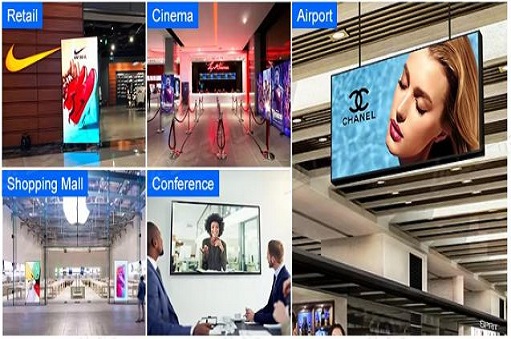Since the steady development of market economy in recent years, more high-rise buildings are popping up throughout cities, and transparent LED Screens have become widely utilized in landscape lighting for urban glass curtain walls and architectural art improvement. Many customers may not understand about the difference between SMD Screen and LED Screen.
Difference Between SMD Screen and LED Screen
Transparent LED Screen differs significantly from SMD Screen for many reasons, including but not limited to these:
Superior Permeability with Amazing SMD LED Display
Superior Permeability and Cool Display Conventional SMD display screens tend to be opaque, which interferes with interior lighting in buildings. By adopting self-developed side emitting display technology and creating virtually inaudible light bars from front view, LED transparent screens use cutting-edge side emitting display technology with much higher transparencies rates while supporting machine stickers more efficiently for higher production efficiencies.
Lightweight Design with Reduce Steel Structure Cost
Conventional SMD display screens weigh in at 42kg per square meter, creating challenges to both steel structures of screens and original building structures when their areas grow too large. A transparent LED Screen offers another solution; when placed vertically without glass it can directly attach itself to its steel structures like curtain walling for direct attachment if installed behind glass curtain wall; furthermore it weighs just 16kg per m2, keeping costs of steel structure down drastically.
Strip Light Bar Structures Can Be Customized In Special Shapes
When conventional SMD display screens are constructed of special-shaped products, their display space may be restricted by box construction; their seams tend to show. By contrast, LED transparent screens allow customization and splicing into perfect special shapes; their transition of curving surfaces looks natural and beautiful compared to SMD screens which support different special-shaped products like cylinders, round tables triangles or even arches.
Outdoor Screen Applications Typically Involve Indoor Installation And Outdoor Viewing
SMD conventional display screens can be found indoors to block sunlight and sight; their LED counterpart is intended for outdoor installations as well as viewing pleasure – no longer do users need to be concerned with waterproof and UV protection as product performance remains very stable.
Shelves Seamlessly Match With Glass Curtain Walls For Concealed Mounting That Won’t Affect The Shape Or Look Of Any Building
SMD Screens typically require the installation of an extensive steel framework structure during their setup process, taking time and effort as well as having an impactful aesthetics impact on buildings. But with LED transparent screens being easily integrated with walls without harm to them and potentially improving overall aesthetics by way of aesthetic improvements – installation becomes effortless while at the same time increasing aesthetic appearances of buildings.
Convenient Maintenance: Light Bar Maintenance
SMD Screens typically need post-maintenance treatments or disassembling of entire modules/boxes before repairs can take place, while with transparent LED Screens maintenance costs can be considerably lower as one light bar needs only be changed during maintenance – SMDScreenStore provides one stop SMD Screen, LED Screen, SMD LED display solutions!
You May Also Like to Read:

